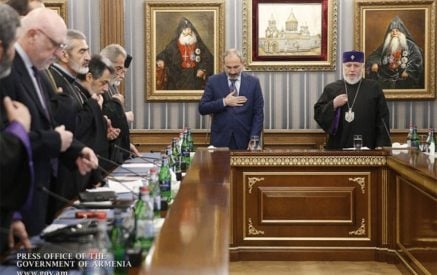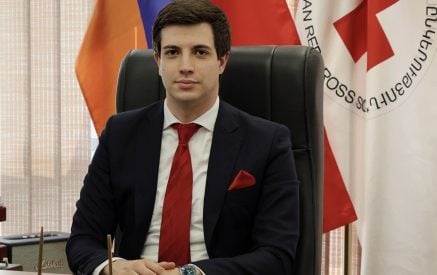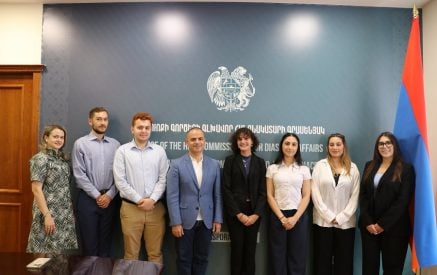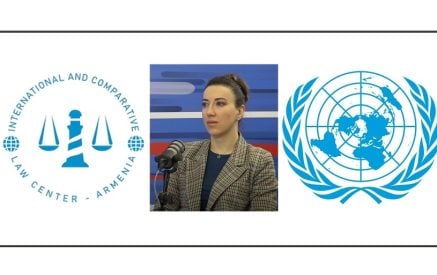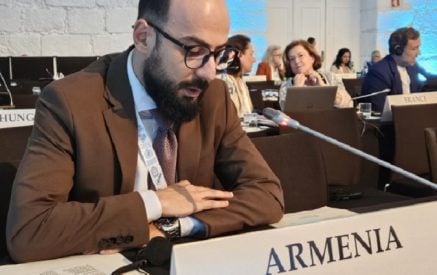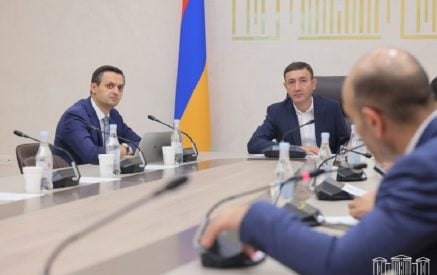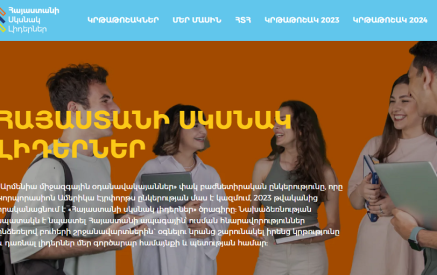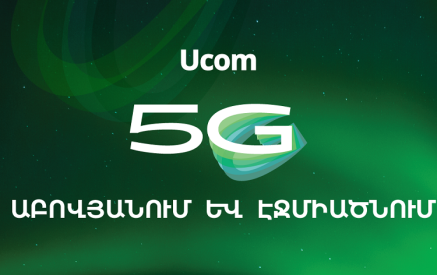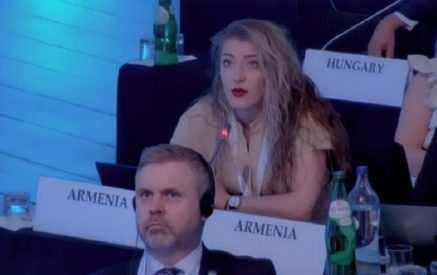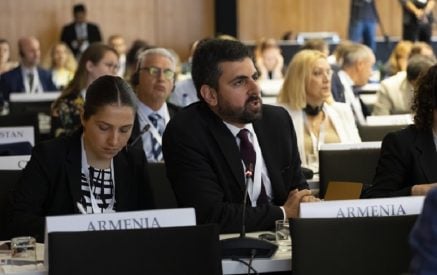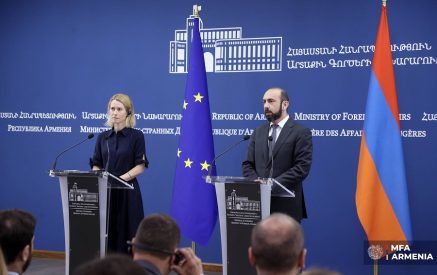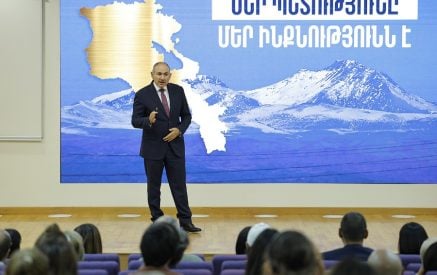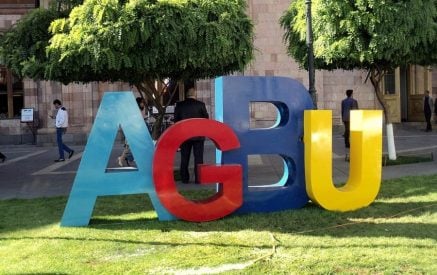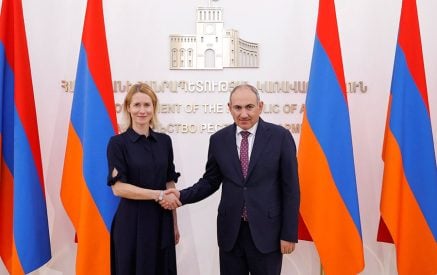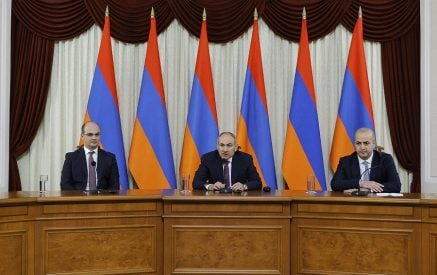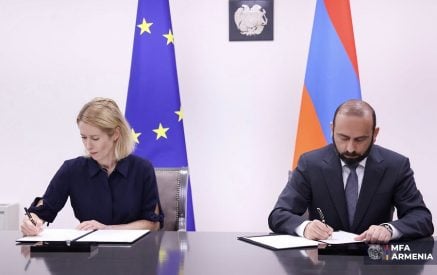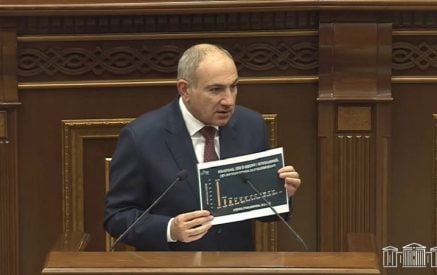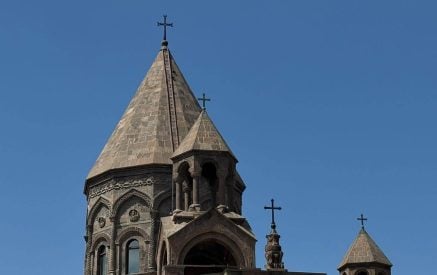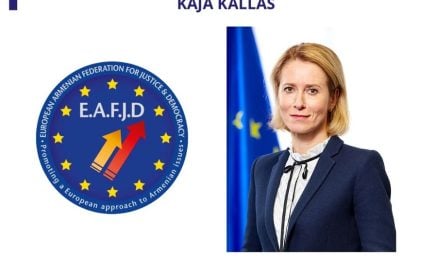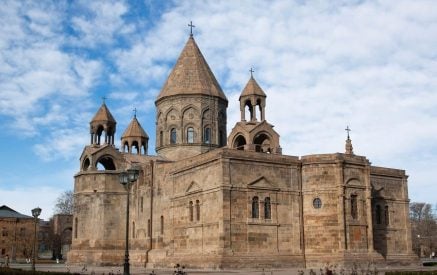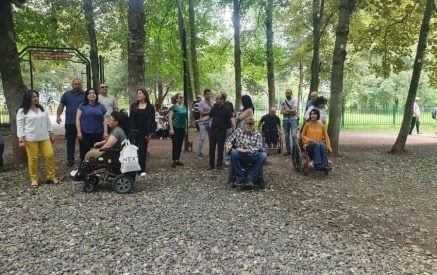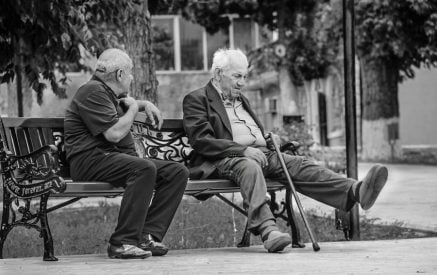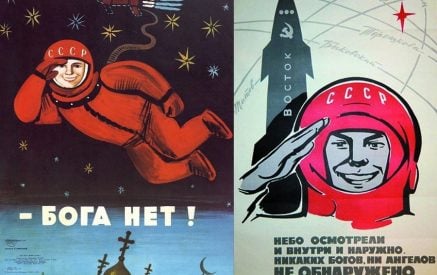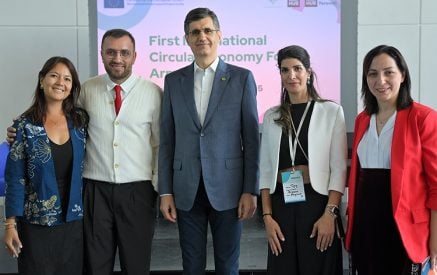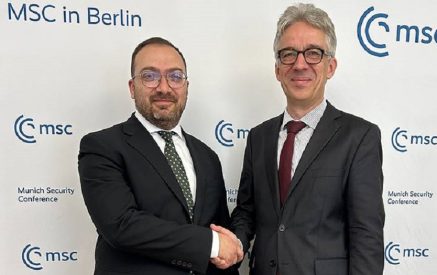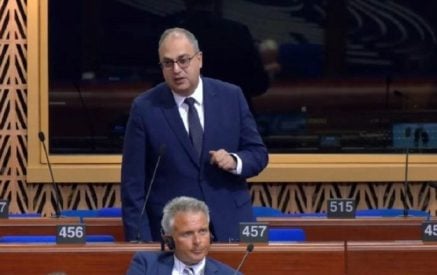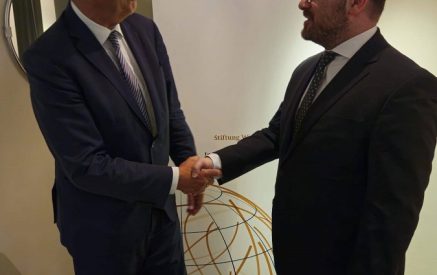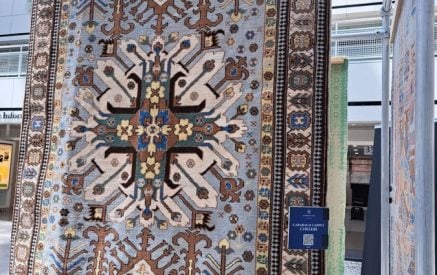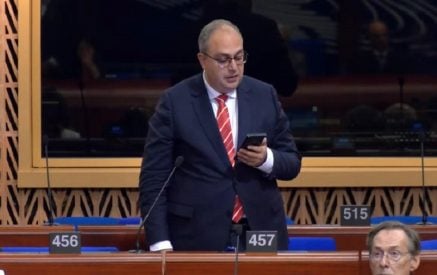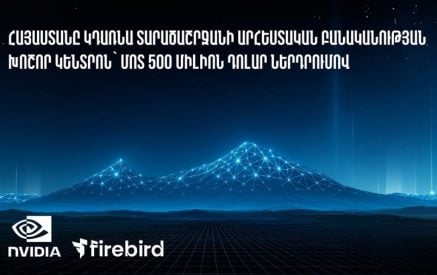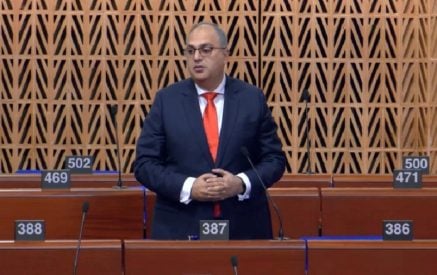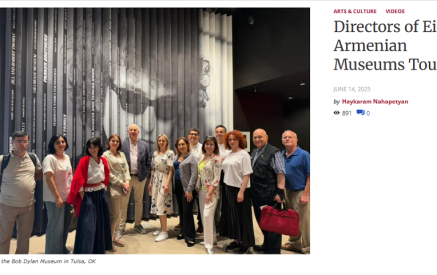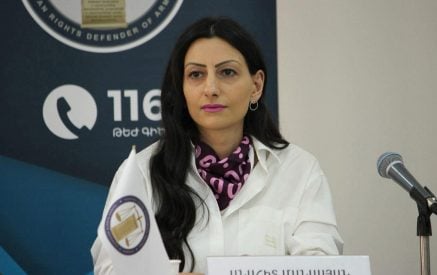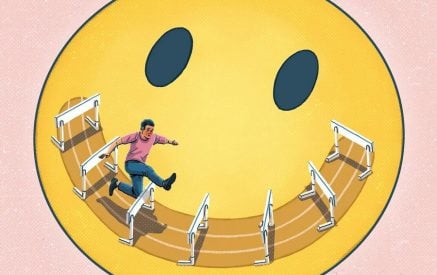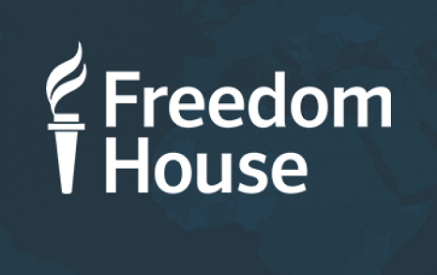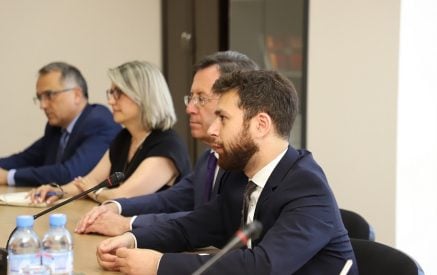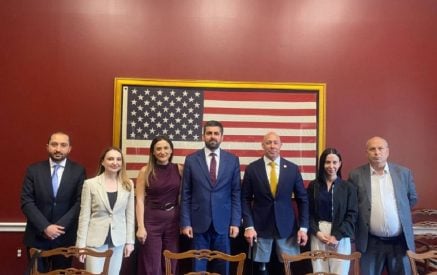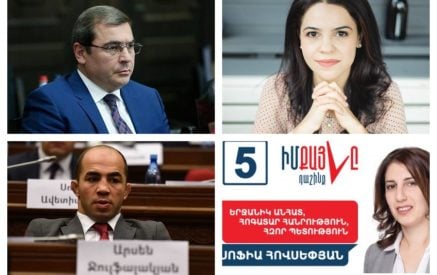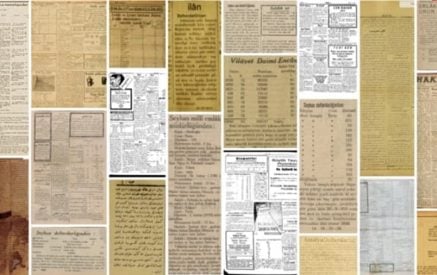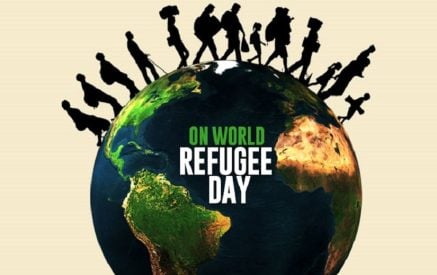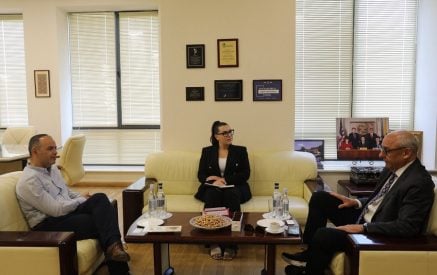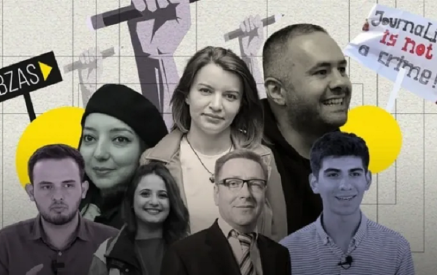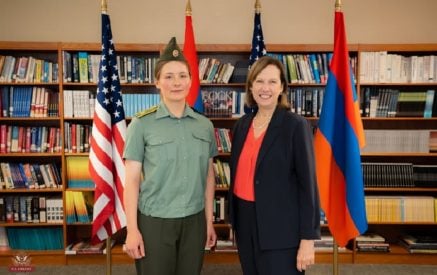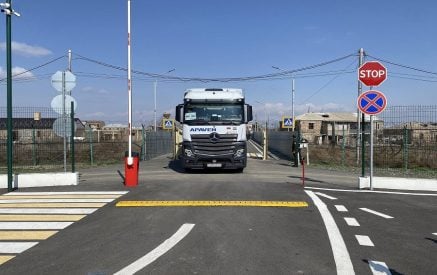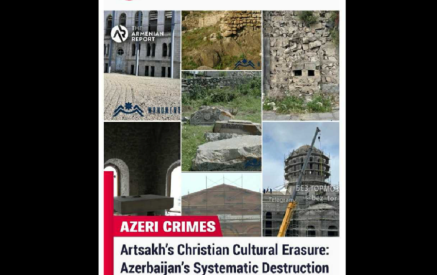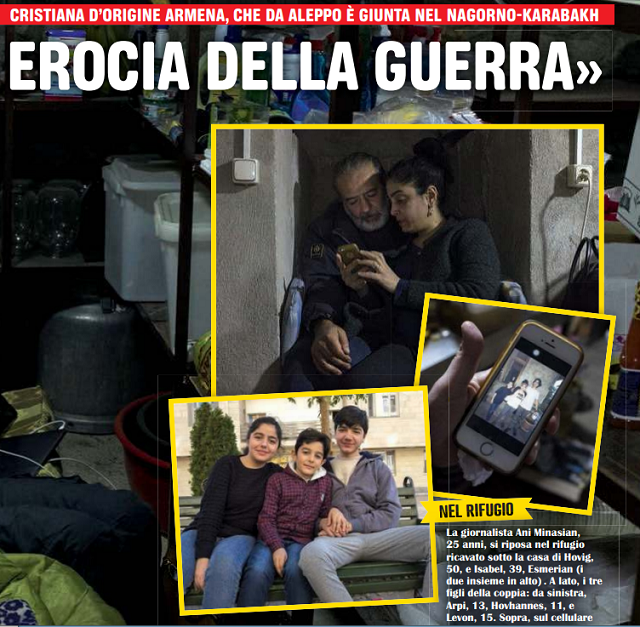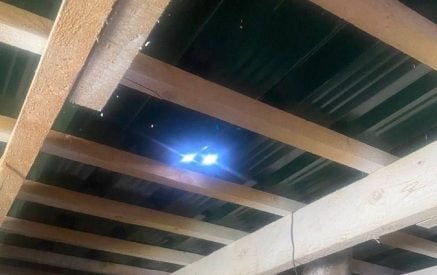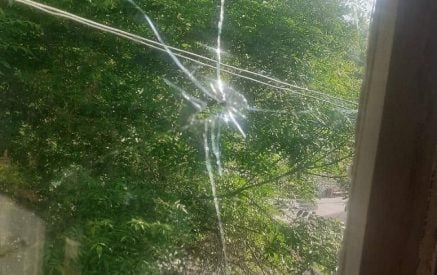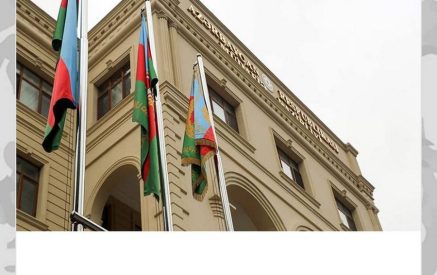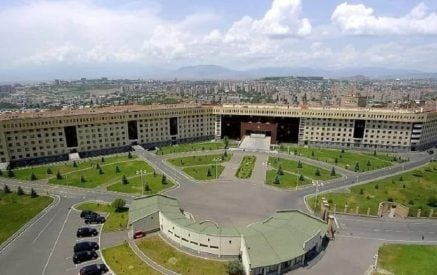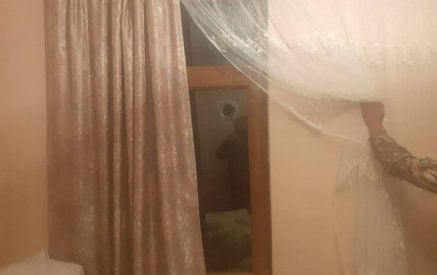CHRISTIAN FAMILY
22/10/2020
Reportage from the Caucasus
Read also
by Eugenio Grosso, from Stepanakert
WE SPENT A NIGHT AND A DAY WITH A CHRISTIAN FAMILY OF ARMENIAN ORIGIN, WHO WAS TRAVELING FROM ALEPPO TO NAGORN-KARABAKH
“IN SYRIA WE HAD A CALVARY. HERE WE WERE REBORN, BUT NOW THESE BOMBS MAKE US FALL BACK INTO ANGUISH. THE ONLY CONSOLATION IS THAT WE WERE ABLE TO PUT OUR CHILDREN SAFE ”
There is a thin thread that intertwines like the roots of plants and binds the Caucasus Mountains and the plain of Aleppo, Syria together. It is the story of Isabel, 39, and Hovig Esmerian, 50, told in the dim light of a torch in their shelter, while outside a siren howls to warn of the impending Azerbaijani bombing. “We were both born in Aleppo, we met within the Armenian community, Isabel was very young,” he says. “The first time I saw Hovig I thought: Is it possible that I haven’t met him before? We got married shortly after”, she intervenes. Isabel and Hovig talk, moving in synchrony in the kitchen cluttered with food.
On 27 September, clashes resumed on the border between Azerbaijan and Nagorno-Karabakh, the self-proclaimed Republic of Artsakh. An ancient conflict that began with the breakup of the Soviet Union. At that time, the population of the region with an Armenian majority, which according to the international community belongs to Azerbaijan, tried to become autonomous under the jurisdiction of Yerevan. At the end of 2012, in the second year of the Syrian civil war, after the explosion of two car bombs 400 meters from their home, Isabel and Hovig decide to leave Syria. “It was too dangerous; I didn’t want my kids to grow up in the middle of a war. Now it seems like a bad twist of fate”.
Hovig is a calm man with a white beard and a kind face. He has a smile that not even conflicts have been able to extinguish. When the Esmerians leave Aleppo they leave everything behind. They decide to return to the land from which their ancestors had to flee to escape the genocide of 1915, when the Turks massacred 1.5 million Armenians. “Aleppo is my second home, but I belong to Armenia more than I belong to Syria”.
In Aleppo Hovig worked with his brothers, they had a car accessories store. Arriving in Stepanakert, the capital of Artsakh, he and Isabel decide to change their lives. They buy land and plant olive trees, pistachios, kiwis and snuff peaches. They bring trees and plants from Syria, they are the first to cultivate them here. “We tried to create our Syria”. The land of the Caucasus is fertile, the production goes well and their life is happy again, as before the war. In the markets, where their fruit is sought after, snuff peaches have never been seen. It doesn’t even have a name in Armenian, so Isabel and Hovig rename it sira teghts: Syrian peach or love peach. Sira, like Syria, but also like love in Armenian.
Isabel has deep eyes, her face framed by a band that gathers her hair, as is used in Syria. She looks carefree, but her gaze controls everything. “I warm you up some soup, it’s made with what I found. In war you have to eat when you can, you don’t know when you can do it again”. We don’t argue with her. She is always the last to go down to the shelter when the sirens are heard and the first to come out. “The planes are long gone and I need my coffee. We are at war, but I cannot give up my life”.
Together with them Ani Minasian, 25, a journalist from Yerevan who has chosen to live and work in Stepanakert. She runs the only remaining radio in the city, Artsakh Public Radio. It gives updates on bombings and allows soldiers to keep in touch with families. She feels this is the place she should be; it is her duty. “When I arrived the radio was about to close; many had left to escape from the war. I put together a new editorial team, there are four of us, the only ones left to broadcast from here”.
The night is long and time does not pass. Ani checks the news; the cell phone screen lights up her face. “My house is not safe. When I met Isabel and Hovig we immediately became friends, so when the bombs started falling in the city, they welcomed me into their shelter”. Stepanakert was a happy island. Away from the front line, even in the early days of the conflict she had never been under fire from Azerbaijani artillery. Ani crouches on the mattress, the phone always in her hands: “Every generation here has had its war. Now we all have a friend, a brother, a son at the front, our families are at the forefront. I hope that at least my children, if one day I have them, will not have the same destiny”.
The refuge has thick stone walls, the ceiling is low and sometimes there is no air. When the siren starts, everything is in silent, the listening begins. The first explosion is far away, the second closer. The rhythm of the roars is irregular; it is not possible to predict when the next one will arrive. Isabel is not afraid, at least she doesn’t show it. She sits on a mattress thrown onto the concrete floor, next to her is a reproduction of Raphael’s Sistine Madonna, a gift from a friend. “Since this painting entered my life, many miracles have happened. Big and small miracles. I’m sure this war will end and we will make it”.
There is a roar, then another, too loud and close to be quiet. The light goes off, the phones no longer work. The torches are waved to see if the shelter has held. Isabel remains impassive. With a wave of her hand she loosens her hair and in the darkness begins to comb them with fingers. She belongs to this place and this is where she wants to stay. “We will not leave, this is our land and we are tired of running away”. Isabel and Hovig hug each other, their eyes go to the photos of their children. “At first we didn’t think they would bomb Stepanakert. Hovhannes, our youngest son, was scared, we sent him to his uncles in Yerevan. Instead the older ones, Levon and Arpi, did not want to leave, so we had to make them go by tricking”.
Two hundred kilometers to the west, in a residential area of Yerevan, Levon (15), Arpi (13) and Hovhannes (11) play chase like all brothers in the world. They seem carefree, but when the mind goes to the parents locked in the shelter the expression changes, they become adults. “They told me to accompany my sister to Yerevan, my father assured me that I would return to Stepanakert, but it was a lie. When the taxi driver refused to take me back I was furious, I phoned my parents and we had a fight. Five times I tried to escape, the last one I almost succeeded but a soldier caught me”. Levon is a tall guy, with a sweet expression that quickly becomes serious. Like Arpi, the same dark eyes of her mother Isabel and the quick talk: “They told me too that I could go home, I just had to check that my brother was okay. Instead, since that day, I haven’t seen my parents anymore”.


